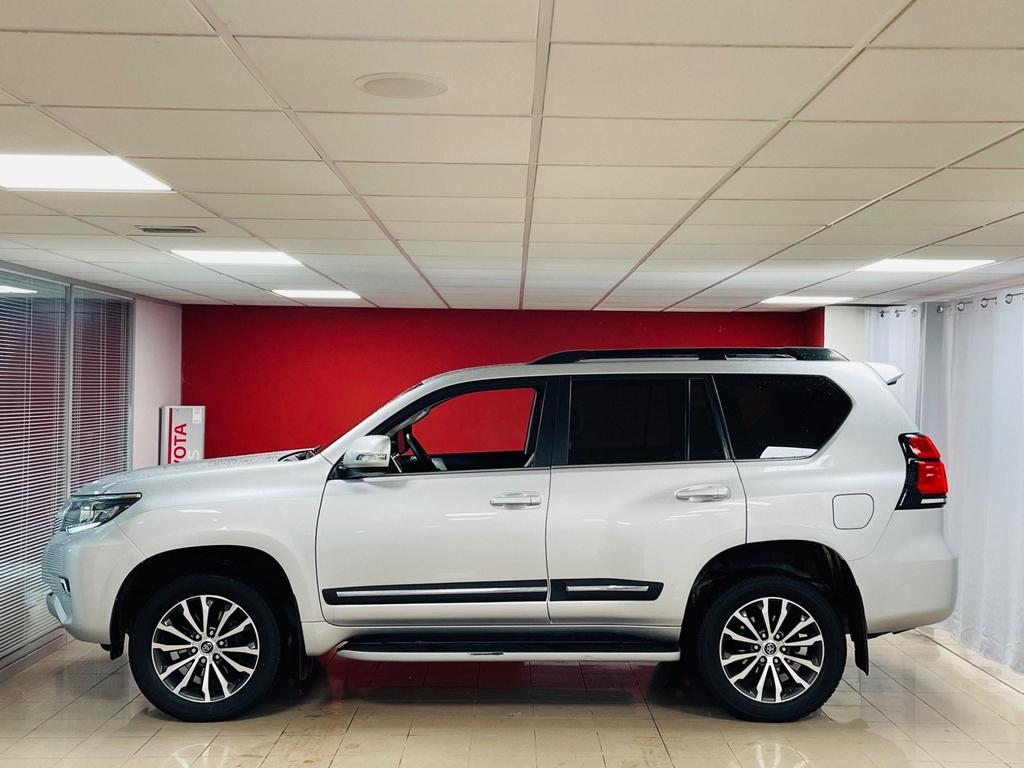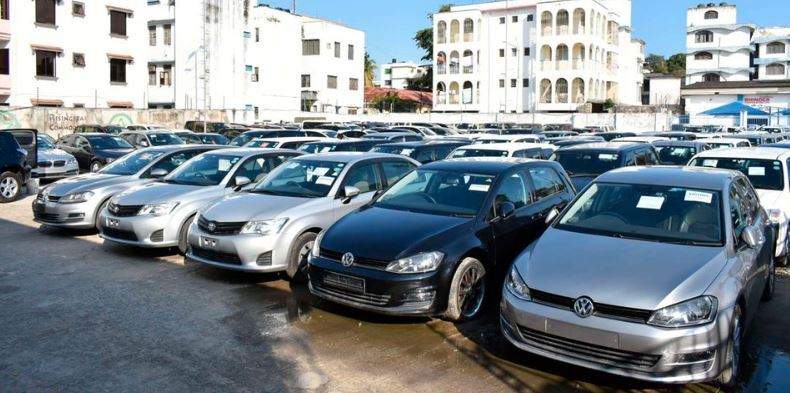To ensure a smooth and legal import of cars from the UK to Kenya, there are several steps and considerations to take. To do this, you usually need to research regulations, find a reputable shipping company, handle customs procedures, and comply with local emission and registration laws.
When importing vehicles from the UK, proper paperwork and documentation are essential. A vehicle’s title, bill of sale, proof of compliance with safety and emission standards, and any other relevant documents may be required by customs authorities. If you do not provide accurate documentation, vehicles may get delayed, fined, or even seized.
The purpose of this article is to provide a detailed guide on importing cars from the UK, emphasizing the importance of following proper procedures and ensuring all necessary documentation is in order. Individuals can navigate the process of importing vehicles successfully and avoid pitfalls by understanding the requirements and process involved.
Overview of Import Regulations for Vehicles in Kenya
The Kenya Revenue Authority (KRA) and Kenya Bureau of Standards (KEBS) set specific requirements and regulations for the importation of cars into Kenya. Importers must adhere to these regulations to avoid penalties or delays in the clearance process. These regulations ensure that vehicles imported into the country meet safety, environmental, and quality standards.

Specific Regulations and Requirements for Importing Cars from the UK to Kenya.
Several particular requirements must be fulfilled when importing cars from the UK to Kenya. and requirements that importers need to be aware of:
- Age Restriction: The age limit for importing cars into Kenya is eight years from the year of registration This indicates that vehicles older than eight years cannot be imported into the country.
- Right-Hand Drive: In Kenya, vehicles must be right-hand drive. Left-hand drive vehicles are prohibited unless they are for special purposes such as ambulances or fire engines.
- Roadworthiness Inspection: A car must be inspected for roadworthiness by a UK inspection organization with approval before being shipped to Kenya.
- Certificate of Conformity: A Certificate of Conformity (CoC) issued by the Vehicle Certification Agency (VCA) in the UK is required for all vehicles being imported into Kenya.
- Customs Clearance: Importers need to make sure that all customs duties and taxes are paid before the vehicle can be cleared for entry into Kenya.
- Registration: Once the vehicle arrives in Kenya, it must be registered with the Registrar of Motor Vehicles within 30 days of arrival.
- Import Declaration Form: Before exporting a car to Kenya, importers must complete an Import Declaration Form (IDF) using the KRA’s web portal.
- Excise Duty: Depending on the engine capacity and type of vehicle, different rates of excise duty apply to all motor vehicles imported into Kenya.
Key Factors Influencing Import Regulations
Several key factors influence import regulations for vehicles in Kenya:
- Safety Standards: To safeguard citizens and other road users, the government is ensuring that cars imported into the nation adhere to the bare minimum of safety requirements.
- Environmental Concerns: To lessen car pollution on Kenyan roadways, import laws also take environmental concerns like emissions standards into account.
- Protection of Local Industries: Certain import laws may be implemented to safeguard regional industries, such as the automobile industry, by placing limitations on particular car models or establishing import quotas.
- Revenue Generation: Since car import taxes and levies make up a sizable portion of government revenue, import laws are made to ensure these funds are collected effectively.
- Consumer Protection: By establishing quality requirements for imports, regulations also seek to shield customers against unsafe or substandard vehicles.
Documentation and Paperwork
- Import Declaration Form (IDF):
Getting an Import Declaration Form (IDF) from the Kenya Revenue Authority (KRA) is the first step in importing a car into Kenya from the UK. This form is crucial since it indicates an intention to import a car into Kenya. It is a necessary step in the importation procedure and acts as an official notification to the customs authorities. Without an IDF, the vehicle cannot be legally imported into Kenya from the UK.
- Pre-Export Verification of Conformity (PVoC) Certificate:
The Pre-Export Verification of Conformity (PVoC) certificate is obtained before shipping the vehicle from the UK to Kenya. This certificate verifies that the vehicle attains the relevant Kenyan standards and regulations, ensuring its compliance with safety, environmental, and quality requirements.
- Original Logbook and Invoice:
The original logbook of the vehicle, also known as the vehicle registration document, provides proof of ownership and contains important details such as the vehicle’s identification number, make, and model. The original invoice showing the purchase price is required for customs clearance and determines the vehicle’s value for taxation purposes.
- Bill of Lading:
The Bill of Lading is a document issued by the shipping company or carrier. This document serves as proof that the vehicle has been loaded onto the vessel and is in the process of shipping from the UK to Kenya. The Bill of Lading is a required document for clearing the vehicle at the Mombasa port of entry in Kenya.
- Import Duty Receipt:
Importing a car into Kenya from the UK involves paying import duties. The import duty receipt is a crucial one as it serves as proof of payment. Legal authorities need the receipt to validate that the necessary import duties have been paid before clearing the vehicle at the port of Mombasa. Payment of import duty is mandatory when importing a vehicle into Kenya. The receipt for the import duty paid should be included in the documentation.
- Road Worthiness Inspection Certificate:
A Road Worthiness Inspection Certificate is issued by an authorized inspection agency in the UK. It verifies that the car attains the required safety and environmental standards. This certificate ensures that the vehicle is roadworthy and compliant with the regulations set by the Kenyan authorities.
- Insurance Certificate:
An insurance certificate is required for the vehicle during its transit from the UK to Kenya and upon its arrival in Kenya. The insurance certificate provides coverage for any potential damage or loss that may happen during the shipping process.
- Single Business Permit (SBP):
The vehicle must have a Single Business Permit (SBP) if it is being imported for commercial use. The county government where the business will be located provides the SBP. It authorizes the importation of the vehicle for commercial use and ensures compliance with local business regulations.
- Tax Compliance Certificate:
It is necessary to obtain a Tax Compliance Certificate from the Kenya Revenue Authority (KRA) before importing a car into Kenya from the UK. This certificate confirms the importer’s good standing with the tax authorities and demonstrates that they comply with their tax duties.
- Clearing Agent Appointment Letter:
An appointment letter is required to employ a licensed clearing agent in Kenya to manage the customs clearance procedure. With the help of this letter, the clearing agent is permitted to act on behalf of the importer and facilitate the processes and paperwork needed to clear the car at the port of entry.
Common Challenges in the Documentation Process During Car Import from the UK to Kenya and their Solutions
Importing a car from the UK to Kenya involves several documentation requirements and processes. Here are some common challenges that can arise during the documentation process and their potential solutions:
-
Vehicle Registration and Documentation:
Challenge: Obtaining complete and accurate documentation from the UK, including the vehicle’s registration documents, ownership proof, and any applicable import/export certificates.
Solution: Work with a reputable car exporter or shipping agent in the UK such as the UK Roadrunner who can assist in obtaining the necessary documentation. They should ensure that all required paperwork is in order before shipping the vehicle to Kenya.
- Customs Clearance and Import Procedures:
Challenge: Navigating the complex customs clearance and import procedures in Kenya, which involve submitting various forms, paying customs duties and taxes, and complying with import regulations.
Solution: Engage a licensed clearing agent or customs broker in Kenya with experience in car imports. They can guide you through the customs clearance process, assist with filling out the required forms, and ensure compliance with import regulations.
- Duty Calculation and Payment:
Challenge: Determining the correct customs duties and taxes payable on the imported vehicle, as the rates can vary based on factors such as the vehicle’s age, engine capacity, and value.
Solution: Seek assistance from a customs agent or shipping company to accurately calculate the applicable customs duties, import taxes, and other charges. They can help you understand the duty rates and ensure you make the correct payments to the relevant authorities
-
Compliance with Vehicle Standards and Regulations:
Challenge: Ensuring that the imported vehicle meets the required safety and environmental standards set by the Kenyan authorities.
Solution: Before importing the car, research and understand the specific regulations and standards applicable to vehicle imports in Kenya. Engage a reputable car inspection service in the UK to conduct a pre-shipment inspection, ensuring the vehicle complies with Kenyan standards. This will help avoid any compliance issues upon arrival.
-
Documentation Translation and Notarization:
Challenge: Translating and notarizing the necessary documents, such as the vehicle’s registration documents, invoices, and certificates, from English to Swahili or another accepted language in Kenya.
Solution: Hire a professional translator who is familiar with the required document translations for car imports. Ensure that the translated documents are notarized or authenticated by a recognized authority to validate their authenticity.
-
Timely Submission of Documentation:
Challenge: Meeting the deadlines for submitting the required documentation to the relevant authorities, such as customs, port authorities, and registration offices.
Solution: Plan and start the documentation process early to allow sufficient time for gathering, preparing, and submitting the required paperwork. Maintain open communication with your shipping agent, customs broker, and other involved parties to ensure timely submission of documents.
Conclusion
Importing cars from the UK to Kenya involves a detailed process that requires careful attention to documentation and paperwork. Adhering to import regulations, obtaining the necessary certificates, and completing the required forms are essential steps to ensure a smooth and legal importation process.
It is crucial to research and understand the specific requirements and regulations enforced by the Kenya Revenue Authority (KRA) and Kenya Bureau of Standards (KEBS). Engaging the services of a reputable shipping company such as the UK RoadRunner and seeking guidance from customs agents or import specialists can also help navigate the process effectively. By following the correct procedures and ensuring all documentation is in order, individuals can successfully import cars from the UK to Kenya while complying with the applicable laws and regulations.
